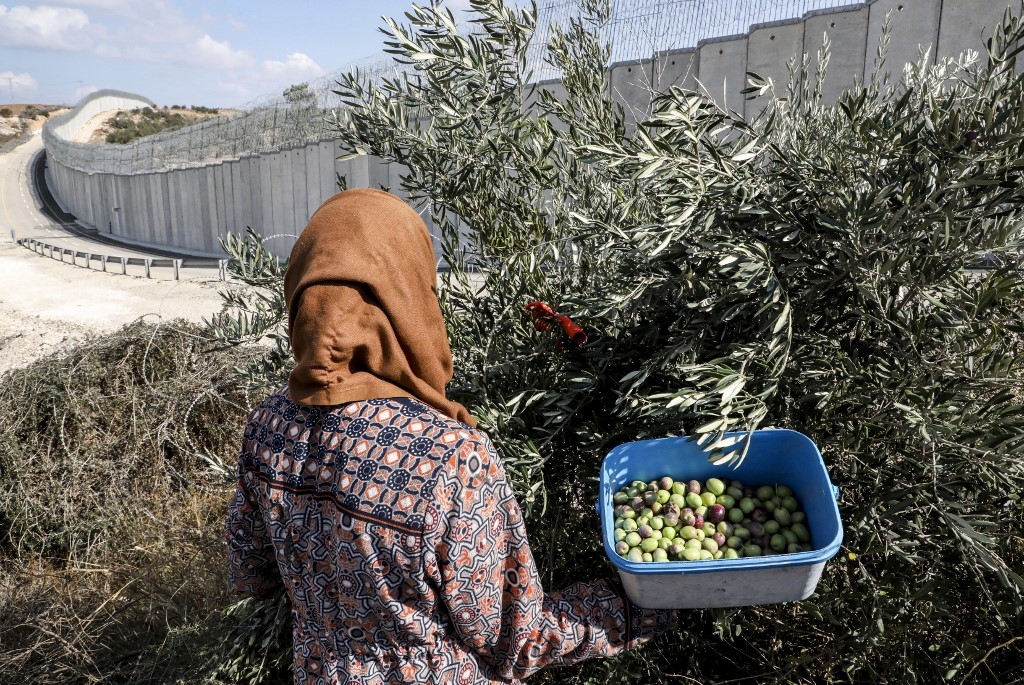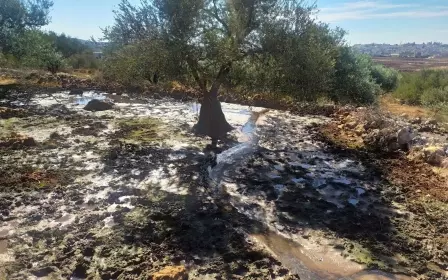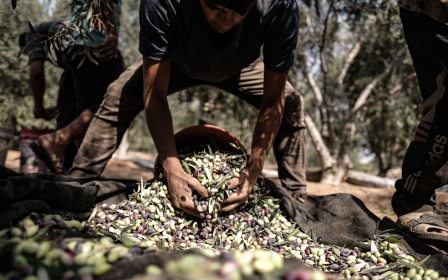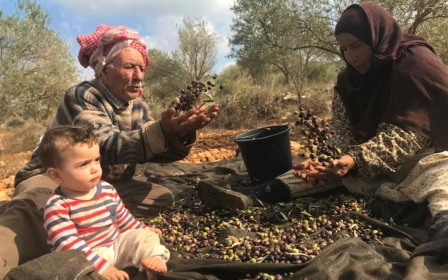Israeli bulldozers and settlers uproot Palestinian olive trees in West Bank

Israeli bulldozers demolished a Palestinian house and settlers uprooted dozens of olive trees in the occupied West Bank on Monday, according to Palestinian state news agency Wafa.
Israeli soldiers and bulldozers blocked an area in Taybeh village and demolished a house, which was close to the Israeli separation wall that runs through the village’s land.
In the town of Salfit, north of the West Bank, Israeli bulldozers razed and uprooted almost 60 olive trees on Sunday.
Salfit’s mayor, Abdel-Karim Fattash, told Wafa that the olive crops were owned by a resident from the town. The last days of October are traditionally the season for harvesting olives in Palestine.
Fattash told Wafa that the Israeli forces issued an order to “stop work on a playground for the physically disabled that was being built in the same area".
Salfit and Taybeh are surrounded by several Israeli illegal settlements.
On Monday, in al-Mugheer, east of the city of Ramallah, Israeli settlers uprooted around 100 olive trees belonging to residents of the village.
Israeli settlers' so-called “price-tag” attacks have become increasingly common in the West Bank.
In addition to slashing car tyres and painting anti-Arab slogans, “price-tag” attacks often include assaults on Palestinians and the cutting down of trees belonging to Palestinian farmers.
Middle East Eye propose une couverture et une analyse indépendantes et incomparables du Moyen-Orient, de l’Afrique du Nord et d’autres régions du monde. Pour en savoir plus sur la reprise de ce contenu et les frais qui s’appliquent, veuillez remplir ce formulaire [en anglais]. Pour en savoir plus sur MEE, cliquez ici [en anglais].





